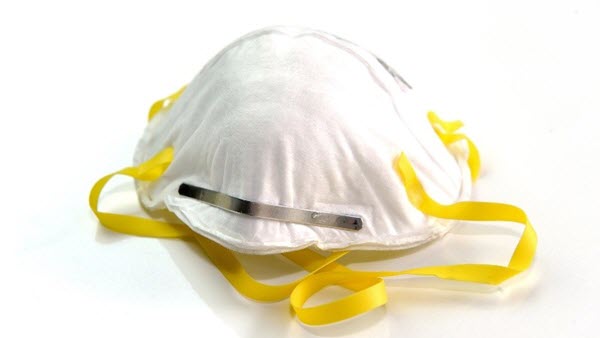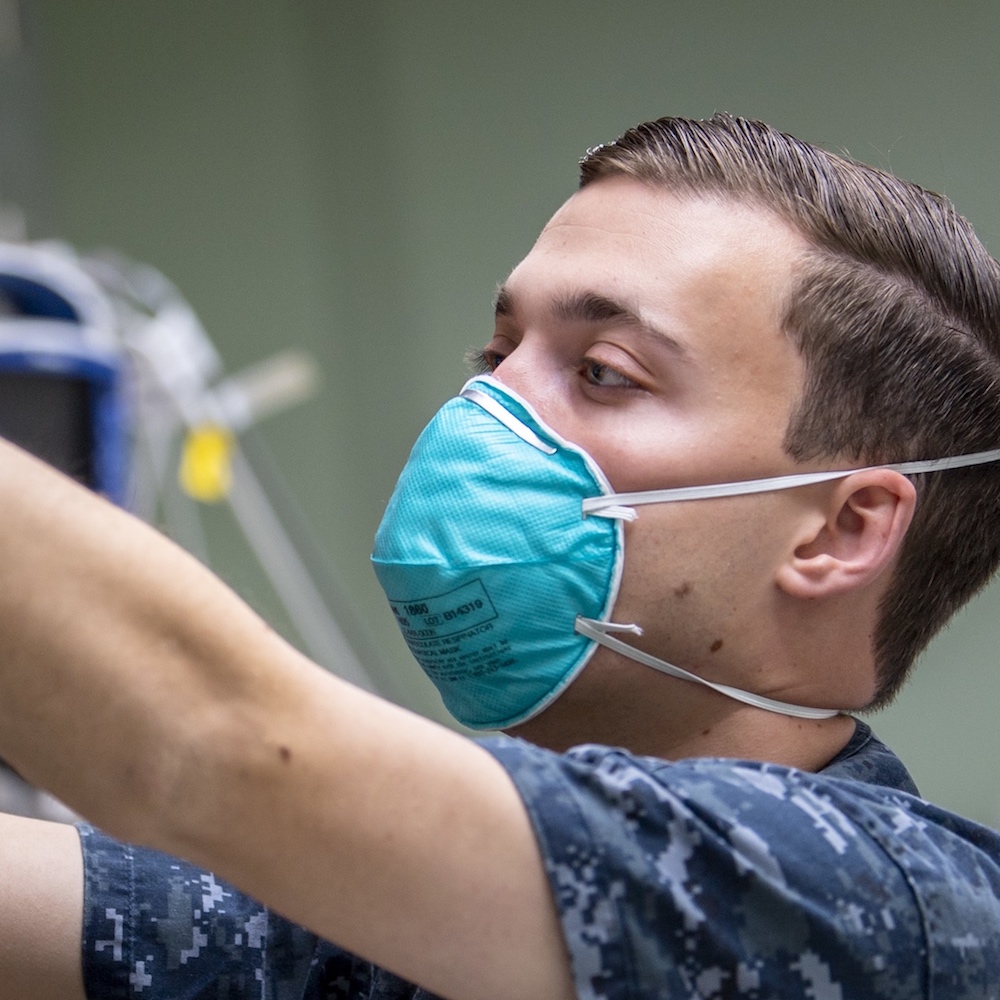- Protect Yourself and Save Others
- info@wearamask.org



N95 masks are the U.S. standard for respirator masks. An N95 respirator is a respiratory protective device designed to achieve a very close facial fit and very efficient filtration of
airborne particles. Note that the edges of the respirator are designed to form a seal around the nose and mouth. Surgical N95 Respirators are commonly used in healthcare settings and are a
subset of N95 Filtering Facepiece Respirators (FFRs), often referred to as N95s.
The similarities among surgical masks and surgical N95s are:
They are tested for fluid resistance, filtration efficiency (particulate filtration efficiency and bacterial filtration efficiency), flammability and biocompatibility.
They should not be shared or reused (although, sterilization methods are being developed to allow for multiple usage).
NOTE: Currently, due to shortages, the Centers for Disease Control and Prevention (CDC) does not recommend that the general public wear N95 respirators to protect themselves from respiratory diseases, including coronavirus (COVID-19). Those are critical supplies that must continue to be reserved for health care workers and other medical first responders, as recommended by current CDC guidance.
Source: U.S.Food and Drug Administration.
A N-95 Respirator, also known as a fluid-resistant mask, is intended to be worn by health professionals during healthcare procedures. It is designed to prevent infections in patients and treating personnel by catching bacteria shed in liquid droplets and aerosols from the wearer's mouth and nose.
N-95 Respirators come in differnet sizes for best fit. Sizing options include small, small/medium, medium, medium/large, and large.

There are four levels of ASTM certification that surgical masks are classified in, depending on the level of protection they provide to the person wearing them:
Standard N95 Respirators – Help reduce particles inhaled by wearer. Can be used for respiratory protection when wearer might be exposed to particulate hazards. N95 respirators were originally designed for industrial use in sectors such as mining, construction, and painting. These are NIOSH (National Institute for Occupational Safety and Health) approved but not FDA cleared and are not fluid resistant.
Surgical N95 Respirator – Help reduce particles both inhaled and expelled by wearer (plus fluid resistance). FDA cleared and NIOSH Approved.
For more information visit the CDC website page on N95 Respirators.
"Standard surgical masks are as effective as respirator masks (e.g. N95, FFP2, FFP3) for preventing infection of healthcare workers in outbreaks of viral respiratory illnesses such as influenza. No head to head trial of these masks in COVID-19 has yet been published, and neither type of mask prevents all infection. Both types of mask need to be used in combination with other PPE measures. Respirator masks are recommended for protection during aerosol generating procedures (AGPs). Rapid reviews on wider PPE measures, and what counts as an AGP, are ongoing."
(March 24, 2020) The Centre for Evidence-Based Medicine
"There is increasing evidence through comparisons of what's happening in different countries and in different states, in terms of mask usage and mandates, that masks help slow transmission of COVID-19. Of course, it would be ideal if everyone had access to high-quality masks, but masks do not have to be 100% effective to reduce one’s exposure to virus. At this point, any reduction helps. I think it is becoming clear that the benefits to wearing face coverings outweigh any downsides"
(July 8, 2020) Linsey Marr, PhD, Professor of Civil and Environmental Engineering, Virginia Polytechnic Institute and State University
Masks may be more effective as a “source control” because they can prevent larger expelled droplets from evaporating into smaller droplets that can travel farther.
(June 26, 2020) The University of California-San Francisco
If you are a mask manufacturer and want your face mask to be considered for publication on our website, please send a sample supply for review along with a press release. We'll then donate your masks to local organizations including medical personnel and front line workers. Only quality masks will be considered for review and highlighted on our website.